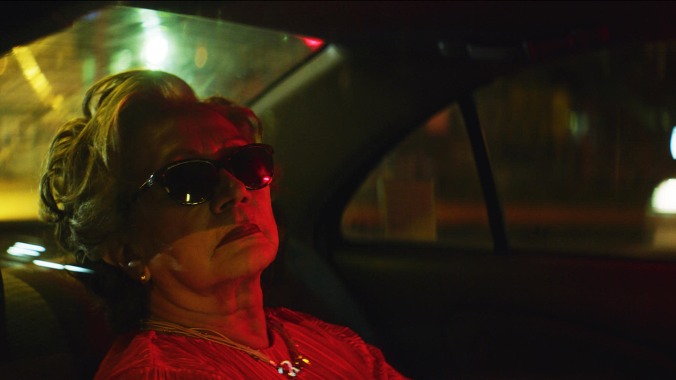Despite its intriguing title, Nona, If They Soak Me, I’ll Burn Them is as exciting as a wet firecracker


Although they’re outnumbered by doddering old ladies and Dirty Grandpas, every once in a while the world of cinema introduces audiences to an older person with a truly radical spirit. Kirin Kiki’s gambling-addicted matriarch in Kore-eda Hirokazu’s Shoplifters is one example of these anti-establishment elders, as is Sônia Braga fighting colonialist oppression by any means necessary in the recent Bacurau. This exclusive coterie of the wise and the dangerous gains a new member with Nona, If They Soak Me, I’ll Burn Them, a movie inspired by (and starring) Chilean writer-director Camila José Donoso’s own firebrand of a grandmother and filmed largely at the elderly woman’s real-life house. But although Josefina Ramirez is playing a version of herself, Donoso is quick to emphasize that the events in the film are fictional—possibly because it opens with her grandmother’s character, Nona, giving a tutorial on how to make Molotov cocktails.
In reality, as in the film, Nona/Josefina is a rebel and an urban guerrilla who bravely resisted the Pinochet regime after it overthrew Chile’s democratically elected socialist government in 1973. A free-spirited and fearless woman who hates fascists and loves to party, she describes building barricades out of tires and then setting them alight just to fuck with government troops, adding with just a whiff of nostalgia, “I had a great time during the dictatorship. I’d cause a scene.” It’s difficult to say whether this is a real memory or an invented one, as Donoso blurs the lines between the two so extensively that the narrative ends up suffering for it. But although Nona, If They Soak Me, I’ll Burn Them struggles to establish the rhythm that can transform mundane events into hypnotic cinema, Nona remains an enjoyable companion: elegant yet brash, mischievous yet unassuming.
At the beginning of the film, Nona abandons her home in the city and retreats to a half-remembered plot of land in the coastal town of Pichilemu, which—best as she can recall—she and her late husband bought back in the Allende era. Why Nona had to flee is something of a mystery, and the film takes its time circling back around to her revolutionary activities as she deals with the more everyday problems of undergoing and recovering from cataract surgery. Patch over her left eye and a cigarette dangling from her lips, she spends her days in contented solitude, though she places frequent calls to her daughter (Gigi Reyes) in the city. (Nona wants to make sure that she doesn’t forget to bring hair dye when she comes to visit.)
The one thing that Nona isn’t doing is panicking about the wildfires that have burned down half of her neighborhood, while leaving her home mysteriously untouched. In an eerie bit of parallel thinking, the fires form the background of the story before moving to its forefront halfway through—a parallel to Lee Chang-dong’s recent Burning. But although Nona unfolds at a similar slow-burn pace, that film had a lot more going on in the foreground, both thematically and in terms of plot. Donoso does put an effort into maintaining visual interest throughout this micro-budgeted character study, alternating between professionally shot, full-frame tableaux and intimate, grainy camcorder footage, accentuated with light touches of Brakhage-style experimental montage. However, it remains an undeniable—and inconvenient—fact that the most interesting aspects of If They Soak Me are all offscreen. And without the benefit of that background information, this is an aimless, plodding film whose invigorating sequences of retirement-age anarchy are few and far between. Nona seems like she’d be fun to drink with, though.
